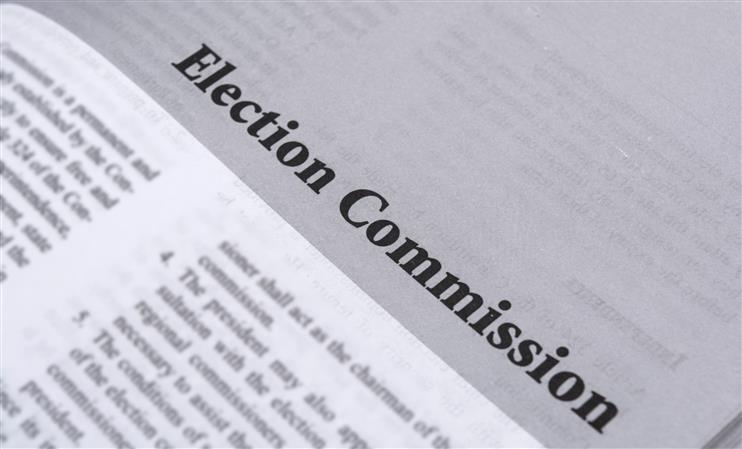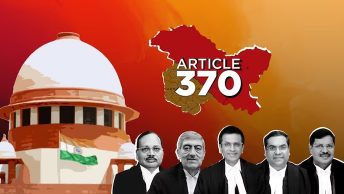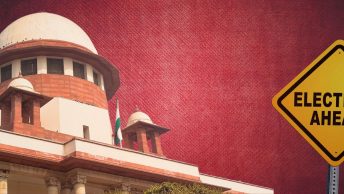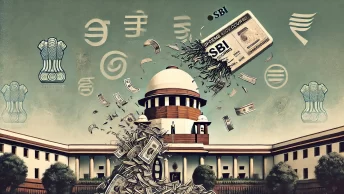In a bit of interpretive jujitsu, the Supreme Court, in its recent judgment of Anoop Baranwal v. Union of India, unanimously held that the Election Commission of India (‘ECI’) must be constituted through a three-member committee, consisting of the Prime Minister, the Leader of Opposition and the Chief Justice of India. Even though the consequences of such a method of composition are left to be seen, it is indeed a positive interim measure, because the current system has led to a severe erosion of the independent character of the ECI. I show how, during its drafting, the concern raised in the Constituent Assembly regarding the design of Article 324, which, inter alia, deals with the composition of the ECI and the powers vested with it, has manifested on several occasion.
Constituent Assembly concerns regarding Article 324
There was consensus amongst the members of the Constituent Assembly that elections must be an independent process, devoid of influence from the other political branches. In order to give effect to this aspiration, it was imperative to facilitate the creation of an independent body through the Constitution. However, counter intuitively, the composition of the ECI was left to the prerogative of the President, that is, the Executive.
The concern raised by some Constituent Assembly members regarding Article 324 can be broadly stated as follows: although the ECI was vested with the power of superintendence, direction and control over elections, the appointment of the commissioner(s) was still the prerogative of the President, who belongs to a political party. Since the Executive plays the most powerful role amongst all the branches of the state, it has the power to dwindle the agency of other branches because of its power to render the Constitution itself, meaningless. Therefore, there is no safeguard against the government taking control of the ECI, which is meant to be an independent body.
Dr. Ambedkar, who drafted the provision, admitted that it contained no guarantee against appointment of an unfit person. To allay the concern, however, Dr. Ambedkar and his supporters can be said to have given three responses. One, that it can be legitimately expected from persons occupying the highest positions in the government to act honestly. Thus, they would not deliberately appoint persons who would compromise the independent character of the ECI by siding with the ruling party. This implies that there is also a legitimate expectation from election commissioners to not act at the whim of the ruling party. Two, the phrase “subject to the provisions of any law made in that behalf by the Parliament” was added to the provision. According to Dr. Ambedkar and those who supported him, this placed sufficient limits on the President’s power of appointment. Three, the process of removal of the Chief Election Commissioner (‘CEC’), which resembled that of a Supreme Court judge, accorded them sufficient independence. He substantiated this argument by stating that Article 324(5) also mandates the recommendation of the CEC for removing additional election commissioners.
Inadequately Addressed?
History has shown that the responses outlined above inadequately address the main concern, due to three reasons. First, the assumption that honesty in the appointment of election commissioner(s) can be expected from the government and that consequently the ECI’s independence would not be under threat, does not hold water. It has been observed that election commissioners, including the CEC have themselves compromised on the ECI’s character out of their own volition. One such instance cropped up post the 2019 General Elections when the ECI gave clean chits to certain political leaders for allegedly violating the Model Code of Conduct. One of the incumbent election commissioners, Mr. Ashok Lavasa had a dissenting opinion. The ECI agreed to record the same but refused to release it to the public. This rendered Mr. Lavasa’s dissent practically meaningless. The non-publication of the dissenting opinion disguised the final decision of the ECI as their unanimous decision.
Second, the argument that the Parliament has the power to make laws in this regard will not work until the Parliament actually makes such a law. Justice Joseph notes in the Anoop Baranwal judgment that Article 324 was drafted in the ‘hope’ that the government would take initiative pass a law for the purpose of appointment. In fact, a Private Member’s Bill was introduced in the Lok Sabha by an Opposition Party MP as recently as December, 2022. Incidentally, it came at a time when the Supreme Court had already begun proceedings on petitions to reform the manner of appointments to the ECI. The Bill sought to amend Article 324 and envisaged an appointment panel consisting of Prime Minister, Home Minister, Leader of Opposition or floor Leader in both Lok Sabha and Rajya Sabha and Chief Justice of India and two senior-most judges of the Supreme Court. Additionally, it also sought to fix the term of election commissioners at six years after which they would not be eligible to apply to any governmental office. This latter provision would have ensured greater independence because it eliminates all incentive for an election commissioner to act in favour of the government in an attempt to secure his future prospects. Regrettably, however, the Bill remained pending. The Opposition Party members have acclaimed the Anoop Baranwal verdict as placing much-needed limits on the government’s powers, which were hitherto unchecked due to lack of legislation by the Parliament.
Third, apart from the above-mentioned loopholes in the drafting of the provision, Courts have indirectly permitted the government to restrict the CEC’s power at its whim. There are two landmark cases in this regard. In the case of S.S.Danoa v. Union of India, the petitioners contended that the President could remove an election commissioner from his post only on the recommendation of the CEC, as per Article 324(5). The state on the other hand, argued that Article 324(2) gave the President unfettered power to determine the strength of the ECI. The Court, however, based its judgment on the distinction between the CEC and additional election commissioners and held that because the Constitution mandated only the appointment of the CEC, the protection of independence was guaranteed only to that post and did not extend to the posts of the election commissioners. The difference between the posts of the CEC and the election commissioners were correctly identified by the Court. However, instead of restricting the relevance of the distinction to the internal functioning of the commission, the Court let it become a factor that the government could use to control the commission’s composition at its prerogative.
In another judgment, T.N. Seshan v. Union of India, the government appointed two additional election commissioners without giving the CEC any intimation about the same. Further, their status was equated to that of the CEC by according them equal powers. TN Seshan, the CEC, attempted to demonstrate the government’s mala fide intention to curtail his powers merely because he did not yield to their wishes. The Court, however, rejected these claims and took a stance that was completely opposite to the one in the Danoa case. It noted that the difference in manner of removal does not indicate that the CEC is higher in status than the other election commissioners. Therefore, once again, the Court left the government’s actions unchecked.
Although opposite conclusions were arrived at in the two cases discussed above, a common inference can be drawn. Both judgments affirm that firstly, the Executive’s power of composition of the election commission includes the power to decide whether or not additional election commissioners are required, and their number; and secondly the Executive has the power to decide who will hold the post of election commissioner at any given time without consulting the CEC. If the election commissioners fail to act according to the wishes of the government, they can easily be removed or their posts can be abolished altogether.
A Seemingly Sound Interim Solution
As a fourth branch institution that is tasked with maintaining the sanctity of the Indian democracy through free and fair elections, the ECI is characterized as an independent and autonomous institution. The fundamentality of the independence of the election commission was emphasized upon by the members of the Constituent Assembly. Admittedly, the present form of Article 324 vests the election commission with a certain degree of independence and power to handle its own affairs. However, the extant Constitutional design, in as much as it placed immense hope in the Parliament to enact a law that would ensure such independence, has allowed the compromise of the ECI’s independent character on multiple occasions. Moreover, the judiciary has too failed to keep a check on Executive encroachment.
This naturally raises the question of whether including the CJI in the appointment panel, then, is a sound proposition. During the hearing, Justice KM Joseph justified such inclusion by stating that the CJI’s presence will act as a “message that no mess up will happen.” He acknowledged that judges may also have prejudices. However, the fact is that the judge will be neutral party. In a situation of legal vacuum, and the obvious bias of the other two members of the panel – the Prime Minister and the Leader of Opposition, the involvement of the CJI seems to be the best available option. Therefore, barring other designs for institutional independence put forward by Parliament, the manner of appointment of election commissioners per the Anoop Baranwal judgment is a welcome development for an institution prone to falling prey to Executive control.
Vedika Warrier is a II Year B.A. LL.B. student at the National Law School of India University, Bangalore.







[…] Posted byVedika Warrier […]
[…] Independence: Supreme Court’s Judgment in Anoop Baranwal as a Welcome Alternative, available at, https://lawandotherthings.com/erosion-of-the-ecis-independence-supreme-courts-judgment-in-anoop-bara…, last seen […]